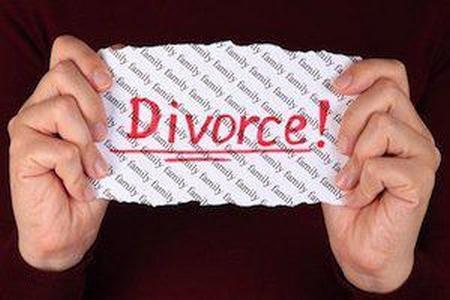Secular Law & Religious Law: Divorce in the Jewish Communities
 In the United States, there is a firm commitment to keeping religion out of its legislative affairs. All religious issues are generally tempered by standards that the Supreme Court has set to help balance religious ideas against secular interests. However, in situations of the family, where religion is closely tied to the concept of the family, the lines become more blurry. Divorce and religion, for example, are generally two concepts that are mutually exclusive, especially in the Judeo-Christian ideology. But where does religion and the law meet? How can the law be utilized in family issues arising in a religious home?
In the United States, there is a firm commitment to keeping religion out of its legislative affairs. All religious issues are generally tempered by standards that the Supreme Court has set to help balance religious ideas against secular interests. However, in situations of the family, where religion is closely tied to the concept of the family, the lines become more blurry. Divorce and religion, for example, are generally two concepts that are mutually exclusive, especially in the Judeo-Christian ideology. But where does religion and the law meet? How can the law be utilized in family issues arising in a religious home?
Jewish Divorce: The Getting of the Get
Recently, family law practitioners have been attempting to intervene in Jewish divorces. Though not necessarily encouraged in Judaism, the religion anticipates the possibility that divorce may be a necessity. Jewish marriages are commenced by a marriage contract, known as a ketubah, which defines the responsibilities of the husband to the wife. In the Jewish religion, a wife cannot independently divorce her husband; her husband must provide her with a get, which voids the marriage contract and releases the wife from the marriage. Though this has a similar foundation as the divorce procedures currently in place in the secular world, the difference is that there is no process in the Jewish world by which a wife may force her husband into providing her with a get, thus leaving her at the mercy of a potentially spiteful husband. Married women who are trapped within the marriage are known as agunot.
American Women Trapped in Marriage with Little Recourse
U.S. courts have chosen to generally stay out of resolving the issues posed to Jewish women trapped in a marriage; the First Amendment prohibits the courts from involving themselves in purely religious affairs and secular court rulings have little bearing in the religious communities. Some less religious Jewish communities may have the discretion to follow civil decisions provided by the court, but more religious Jewish communities still require some type of religious court decision. This leaves a vacuum for women who cannot utilize civil courts and have no access to religious courts as they would in other societies that do not believe in the separation of church and state.
U.S. Court Involvement Limited but Successful
There has been some success in freeing these women from this type of marriage in New York. In 2001, the New York Supreme Court judge administered civil damages against the husband, citing the tort of intentional infliction of emotional distress. Though this was a success, the intentional infliction of emotional distress ground may only be used in limited circumstances, and has only had traction in New York.
Secular Legal Solutions to Mend the Rift between Secular Law and Religious Law
There are secular solutions, however, to empower Jewish women caught between religious laws and secular ones. Though more possible than not, these methods are by no means fool-proof.
-
In conservative Jewish communities, an annulment from a Rabbi may be permitted. The Rabbi, through the annulment, withdraws his consent of the marriage if the husband refuses to provide a get. This, however, is not adopted by the orthodox community.
-
In reformed and reconstructionist communities, a civil divorce may be permitted.
-
As for orthodox communities, prenuptial agreements have become a common practice whereby the secular or a designated religious authority may step in on behalf of the wife.
Experienced Family Law Attorneys in Illinois
Marital issues may arise in both religious and secular families, and may be difficult to resolve. If you and your spouse are considering whether a divorce may be in the best interest of your family, it is important to speak with an experienced Lombard family law attorney at the Mevorah & Giglio Law Offices who can provide you with the necessary legal counsel to help you decide. Contact us today for a free and confidential consultation.
 English,
English,
 Spanish,
Spanish,
 Polish,
Polish,
 Urdu
Urdu













 Make a Payment
Make a Payment



